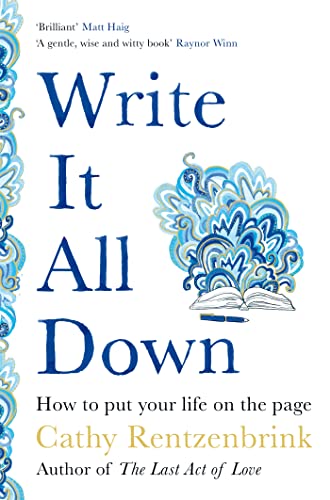Are you feeling the itch to start writing? Or perhaps you already have a work-in-progress but your inner critic is plaguing you with doubts.
Acclaimed memoirist, journalist and best-selling author Cathy Rentzenbrink, sat down with us to discuss how to tell that voice in our head that tells us we can’t write to go away!
Cathy Rentzenbrink:
Do you have a critical voice and what does it say? I remember when Marlon James won the Booker Prize, he attributed his success to getting up earlier than his inner critic. It was one of those lines that sounded both funny and true and I found it deeply consoling.
I was stuck with my first novel at the time, mainly because I didn’t know how to tame the voices in my head that were screaming at me that my writing was rubbish and I was useless and that I might as well give up now because I would never have the stamina to finish and might just explode or go mad. And that even if I did somehow wrestle some words into the right order, that would be a disaster because then everyone would see how untalented I was, how incapable of writing fiction, and people would point at me and laugh and I would be unable to cope. So why not just give up and have a nap? Why bother with all the work as no good would come of it?
Sound familiar? Writer and therapist Julia Samuel refers to this mental chorus as ‘the shitty committee’ and, over time, I have learned how to work around it. I haven’t eradicated it, but have transformed it from a monkey pulling my hair and jabbering in my ear, to a lovely old dog sleeping under my feet. Here’s how.

It can be helpful to know that the critical voice often has its roots in the past
Cathy Rentzenbrink
It can be helpful to know that the critical voice often has its roots in the past and was formed with the intention of protecting us. Perhaps mine is trying to keep me safe. It really wants me to stop exposing myself. ‘Stop standing up,’ it shouts, ‘stop calling attention to yourself! Who do you think you are?’
Being curious about it or getting to know it can help. Writing it down can lessen the sting. Put ‘What do you want?’ at the top of the page and just let your hand move. If you find out the motivation you can offer some reassurance. Often the voice is trying to protect a younger version of ourselves, or save us from something from which we no longer need to be saved. If we know its intention, we can say, ‘Thank you. My today self no longer needs you to protect me.’ Or you can say, ‘I know you are trying to help, but when you hit me over the head with a stick and tell me I’m rubbish, it paralyses me and then I can’t get stuff done, so could you be a bit nicer?’ Or you can imagine yourself locating the volume switch in your head and turning it down. And there are moments when the most helpful thing to do is tell it to shut up for while!
And try not to worry about the quality of the writing. You give the voice less ammunition if you can put less pressure on those early words. Trust that the scribble, and doodles, and bits of paper will grow into something, but for now, all you need to do is turn up with a bit of curiosity and playfulness. I promise that the less time and energy you spend fretting about the quality of your work in progress, the more you will have to give to the work itself.
Ultimately, the only way through is to write. Action cures fear. And Marlon James was right and I continue to follow his advice. I get up early, take myself to the page, and just try to enjoy what happens next.



